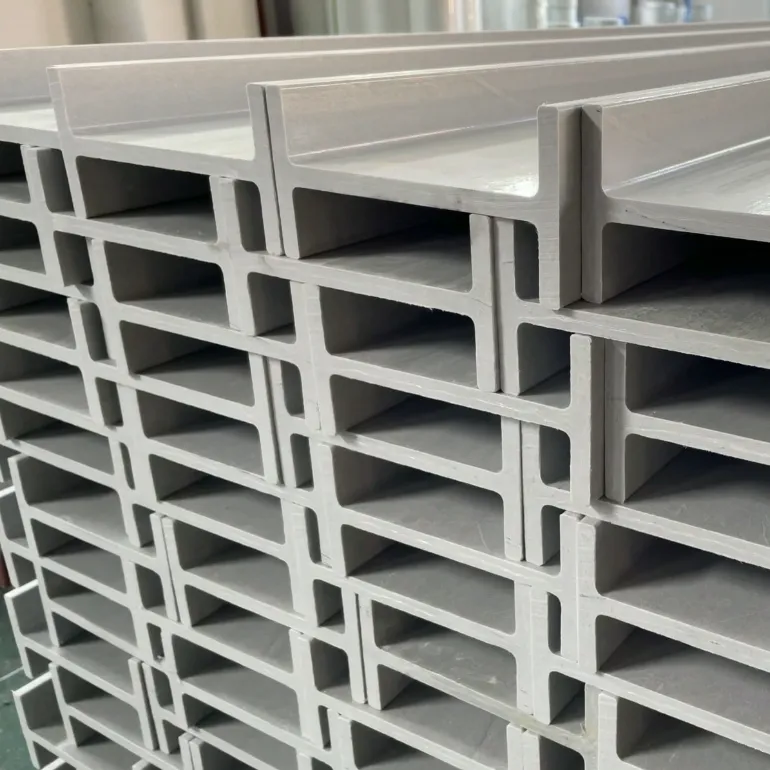loading...
- No. 9, Xingyuan South Street, Dongwaihuan Road, Zaoqiang County, Hengshui, Hebei, China
- admin@zjcomposites.com
- +86 15097380338
- Welcome to visit our website!
frp pressure vessel tank
Fiber Reinforced Polymer (FRP) Pressure Vessels A Comprehensive Overview
In various industrial applications, the need for lightweight yet strong materials has led to the increasing utilization of Fiber Reinforced Polymer (FRP) pressure vessels. These advanced composite materials are designed to withstand extreme pressures and corrosive environments, making them an ideal choice for various sectors, including chemical processing, oil and gas, and water treatment. This article will explore the fundamental characteristics, advantages, applications, and future prospects of FRP pressure vessels.
Understanding FRP Pressure Vessels
FRP pressure vessels are constructed using a combination of resin and reinforcement fibers, typically glass, carbon, or aramid. The choice of fiber determines the mechanical and thermal properties of the final product. The resin matrix encapsulates the fibers, providing structural integrity and protecting them from environmental degradation. The manufacturing process can involve techniques such as filament winding, hand lay-up, or resin transfer molding, which allow for the creation of complex geometries and customizable designs tailored to specific applications.
Advantages of FRP Pressure Vessels
The use of FRP in pressure vessels comes with several benefits
1. Lightweight One of the most significant advantages of FRP is its weight. FRP vessels can be up to 75% lighter than traditional steel counterparts, allowing for easier transport, installation, and handling.
2. Corrosion Resistance FRP is inherently resistant to corrosion, making it ideal for storing and transporting aggressive chemicals. This resistance extends the lifespan of the vessels, significantly reducing maintenance costs and downtime.
3. High Strength-to-Weight Ratio Despite their lightness, FRP materials possess an impressive strength-to-weight ratio. This property allows FRP vessels to handle high pressure and withstand mechanical stresses without the risk of rupture.
4. Thermal Insulation FRP tanks have excellent thermal insulation properties, which are vital in applications involving temperature-sensitive materials. This feature helps in maintaining stable temperatures during storage.
5. Design Flexibility The manufacturing processes for FRP allow for greater design flexibility. Engineers can tailor the vessel’s shape, size, and wall thickness to meet the specific requirements of each application, ensuring optimal performance.
frp pressure vessel tank

Applications of FRP Pressure Vessels
FRP pressure vessels find a wide array of applications across different industries
- Chemical Processing In the chemical industry, where storage and transport of reactive substances are common, FRP vessels are utilized for their corrosion resistance and ability to maintain chemical integrity.
- Water and Wastewater Treatment FRP pressure vessels are used for storage tanks and pressure filters, especially in essential processes like reverse osmosis and membrane filtration systems.
- Oil and Gas The oil and gas sector uses FRP for various applications, including storage tanks for acids and caustics, due to their durability in harsh environmental conditions.
- Food and Beverage In the food industry, FRP vessels provide a non-reactive surface, ensuring that the quality and safety of food products are maintained.
- Marine Applications FRP is also employed in marine environments for various tasks, including storage of chemicals and potable water, due to its lightweight and non-corrosive characteristics.
Future Prospects
The future of FRP pressure vessels looks promising, as innovation continues to drive improvements in material science. Enhanced fiber materials and resins, alongside advanced manufacturing techniques, are being developed to increase performance, reduce costs, and ensure sustainability. Furthermore, as industries move toward greener practices, FRP’s recyclable nature adds to its appeal.
In conclusion, FRP pressure vessels represent a significant advancement in materials engineering, combining lightweight characteristics with high strength and durability. Their increasing adoption across diverse industries underscores their importance in modern industrial applications. As technology evolves, the continuous development of FRP materials and manufacturing technologies will likely lead to even more innovative applications, positioning FRP as a critical player in the field of industrial containers and storage solutions.
-
Why Choose a Galvanized Water Tank for Your Storage NeedsNewsMay.21,2025
-
The Strength and Durability of FRP GratingNewsMay.21,2025
-
The Importance of Water Treatment Systems for Clean and Safe WaterNewsMay.21,2025
-
The Advantages of FRP Rebar for Construction ProjectsNewsMay.21,2025
-
Say Goodbye to Hard Water with a Reliable Water SoftenerNewsMay.21,2025
-
Maximize Your Water Storage with a Sectional Water TankNewsMay.21,2025
-
The Power of Filter VesselsNewsMay.19,2025
